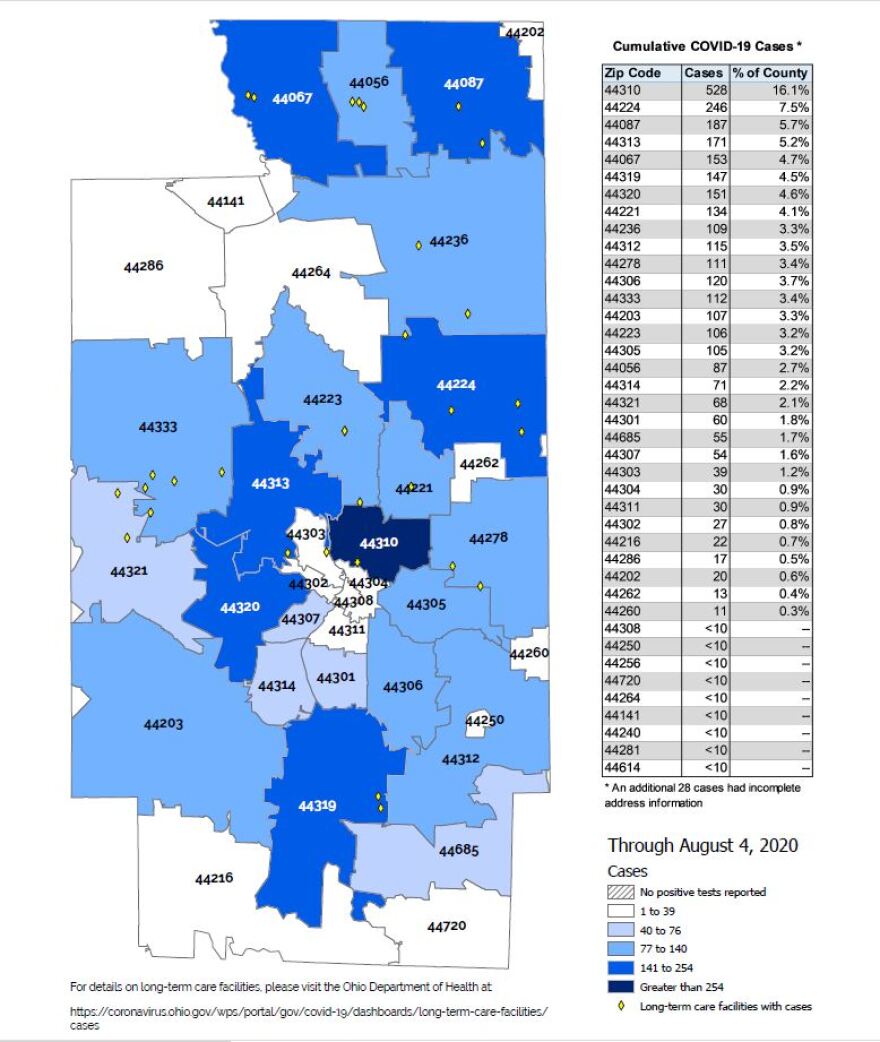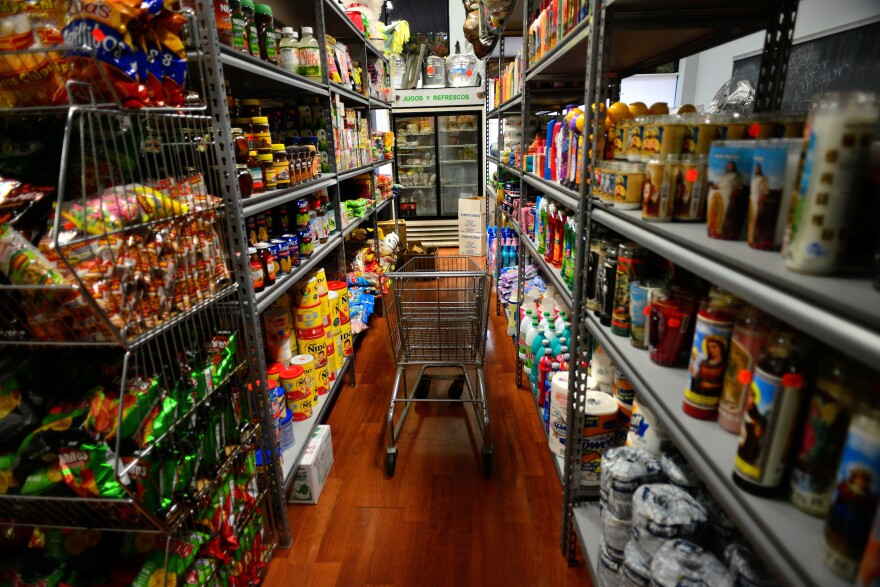The spread of Coronavirus has been more pervasive in some regions than others.
In Akron, the north side of town has experienced greater spread than anywhere in the city. North Akron is the city’s international neighborhood, housing immigrants and refugees from Nepal, Bhutan, Iraq, Afghanistan, the Congo and many others. But one group is working to keep the virus in check.
Take a drive through the heart of North Hill and you’ll find Nepali restaurants, Asian boutiques, Mexican grocers and Italian eateries.
Immigrants contribute much to Akron’s economy. They are also at greater risk than most for exposure to coronavirus.
“They do work in places of business where they are on the front lines, they’re more likely to take public transportation where they’re also exposed to potential COVID,” said Elaine Tso, executive director of the nonprofit Asian Services in Action.
Currently, Asian residents make up the largest immigrant population in the city, with many living in North Akron, zip code 44310. Summit County Public Health data shows that, at more than 500, North Akron has twice as many COVID-19 cases as any other neighborhood. And 68 percent of those who tested positive are Asian.
“A lot of people just want to jump to conclusions that they don’t know better,” said Katie Beck, who runs the North Akron Community Development Corp. and the Exchange House.

But Beck says that’s not true - immigrants have been aware from the beginning about the dangers of the virus.
“Many of them do exactly what they’re supposed to do,” said Summit County Public Health Commissioner Donna Skoda. "It’s just any time you’re in a close environment you’re going to increase your risk.”
And, Akron immigrants often live in close, multigenerational households, Beck said.
“Some of them only have one or two workers making incomes to provide for everyone, so it’s not like they can quit or stop working,” she said.
Caring for extended family is an ethos that’s been passed to the younger generation, who Beck calls “culture brokers.”
“So they’re constantly navigating the world for their families,” she said. “They’re answering calls, they’re

reading legal documents they’re translating in doctor’s offices.”
The BRAVE Project, which stands for Bhutanese Response Assistance Volunteer Effort, exemplifies these values. It was launched in Columbus early in the pandemic by young Bhutanese immigrants affiliated with the nonprofit group the Bhutanese Community of Central Ohio.
Graduate student Sudar Shan Pyakurel, heads up BRAVE Columbus and oversees chapters that have opened in other cities, including one in Akron.
“It’s a tremendous amount of work and a tremendous amount of commitment these young community leaders, and students and volunteers have shown for responding to the COVID crisis,” he said.
The idea for BRAVE was to bring clarity about the virus, and to deliver food and supplies to immigrant families’ doors, Pyakurel said.
“People were so overwhelmed. There was so much information they didn’t know what to do and what not to do,” he said.
Pyakurel‘s team also designed training for the BRAVE chapters so volunteers know exactly how to help families affected by COVID-19.
“We have to educate them, we have to give them orientation on what COVID is, what they need to do, what they don’t need to do, and also provide them with groceries, supplies and medical counseling at the same time,” he said.

University of Akron engineering student Moni Kumar Bhattarai heads up Brave Akron. His teams take every precaution to stay safe when dropping off groceries and other supplies outside, he said.
“We get into the car and call them on the phone and we tell them ‘we’ve got something outside so you guys can come out and pick it up,’” he said. “So we don’t talk to them directly.”
Along with food and Tylenol, BRAVE also delivers natural health supplies.
“Ginger and lemon,” Bhattarai said. “It boosts the immune system, so we buy them that.”
Bhattarai's team stays busy, rounding up volunteers and gathering donated supplies to help as many families as possible.
“So far 28 families are recovered and 12 to 13 are still in quarantine right now,” he said.
This dedication to helping the immigrant community is no surprise to the Exchange House’s Katie Beck, who works with immigrants daily.
“The young people in their community are just so passionate and so ready to help whoever they can,” she said. “They saw this model in Columbus and they heard about other cities doing it and they wanted to step up and help.”
In keeping with that spirit, Bhattarai‘s team is ready to help more people.
“This is not just for Nepalis,” he said. “We have resources. We can help other communities.”
BRAVE Akron is currently running a fundraiser to buy food and supplies.
For more information, or to volunteer, contact BRAVE Akron through its Facebook page. For assistance for those affected by the virus, call the BRAVE helpline at 234-738-5598 or 234-706-9892










